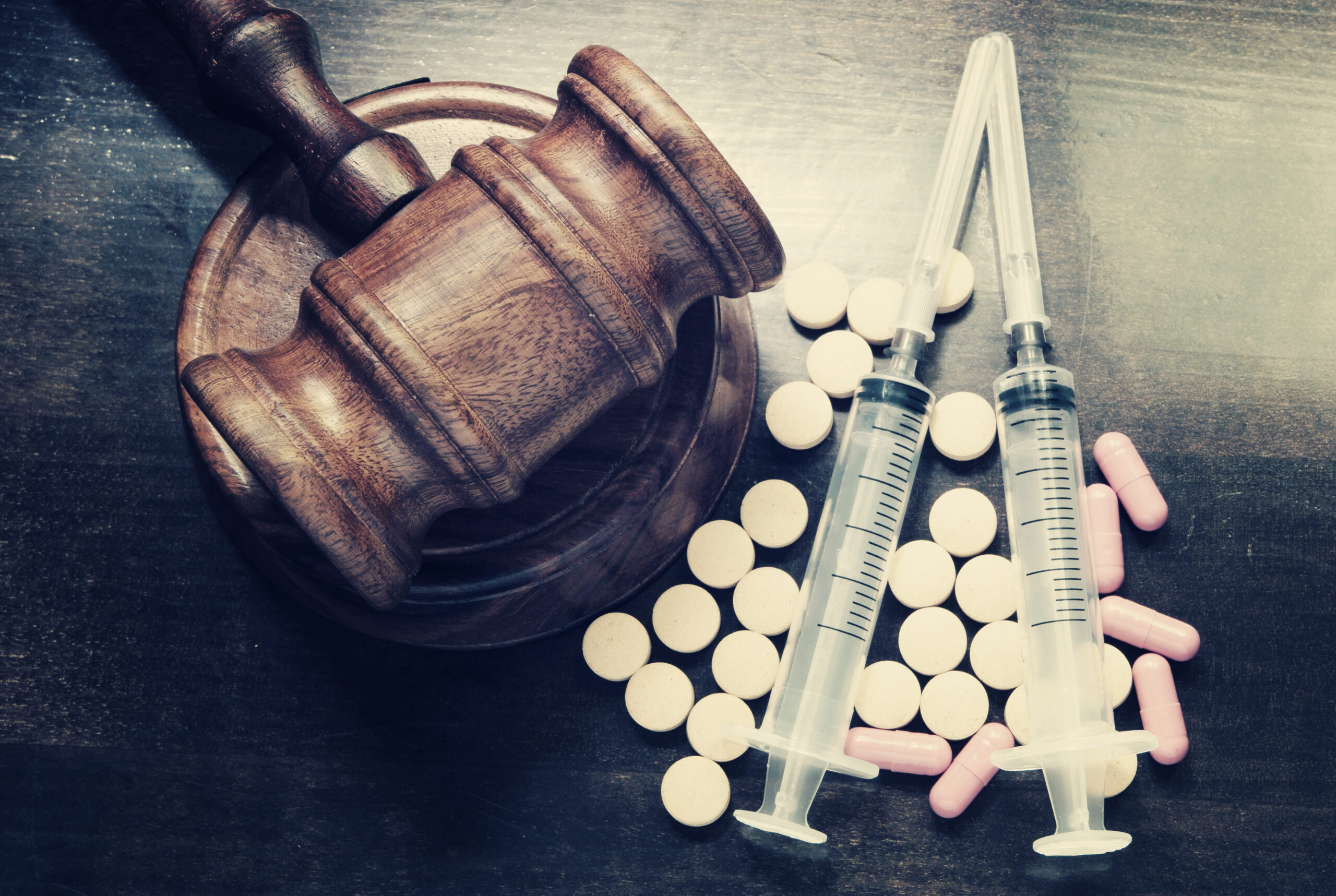Five Need to Know Facts About Drug Crimes
November 09, 2021

Types of Drug Crimes
Most people assume one or two drug laws make it illegal to possess certain types of illicit drugs. On the contrary, there are several different types of drug laws. The most commonly prosecuted drug crimes are possession of a controlled substance or for possessing drug paraphernalia. Drug paraphernalia includes obvious items such as bongs and syringes. However, drug paraphernalia can also include everyday items such as Ziploc bags. The key component and drug paraphernalia charges are whether or not the item in question is commonly used to consume, store, or distribute drugs.
Controlled substances include marijuana, heroin, cocaine, methamphetamine, and other types of dangerous synthetic drugs. With the rise of prescription drug addiction, it is important to understand that drug crimes also include taking prescription medications when you do not have a valid prescription.
Law enforcement has been cracking down on possession of Oxycodone and Xanax, for example. Even though the drug is technically legal because you can take it with a prescription, if you do not have a valid prescription, you could face drug charges. Writing a false prescription to obtain prescription medication is also a serious crime.
The severity of penalties for drug charges depends largely on the amount of drugs you are found with. If you have a large amount of drugs in your possession when you are arrested, you will likely face a charge for possession with intent to distribute. Suppose you are only found with a small amount of marijuana. In that case, however, prosecutors will likely only bring simple possession charges and possibly drug paraphernalia charges if they find any items associated with the marijuana nearby. There are also some common enhancements to drug charges, including selling prescription drugs, selling drugs to a minor, and prescription forgery.
The Difference Between a Misdemeanor and a Felony
Misdemeanor charges typically come with less severe punishments and penalties than felony charges. Typically, felony charges carry a penalty of one or more years in state jail. The weight of the drug you are found with when arrested plays an important role in whether you will be charged with a misdemeanor or a felony. Again, if law enforcement officers found you with half an ounce of marijuana, and there are no enhanced penalty circumstances, you will likely face a misdemeanor charge.
On the contrary, if you are arrested with over one ounce of marijuana, you have a record of prior criminal offenses, or you sold drugs to a minor, you will likely face felony charges. Additionally, if prosecutors have any evidence that you were involved in distributing controlled substances, you may face felony distribution charges.
State Drug Crimes Versus Federal Drug Crimes
Different types of drug crimes involve different jurisdictions. For example, if you break a federal drug crime law, the FBI and or the DEA will likely investigate your case, and federal prosecutors will bring charges against you. If convicted, you will serve your sentence in a federal penitentiary. When suspects break drug laws, state law enforcement officers investigate their cases, and state prosecutors bring charges against them.
If you are convicted of a drug crime, you will serve your sentence in a state jail. Typically federal drug laws cover drug manufacturing, conspiracy to traffic drugs, and drug trafficking. If you are involved with bringing drugs across a state border or across the United States border, you will likely face federal drug trafficking charges.
The Impact of a Drug Crime Conviction
Many times, people who are arrested and charged with drug possession assume that it is no big deal. After all, they only had a tiny bit of marijuana when they were arrested, so how could a conviction affect their lives about much? All drug convictions can have a negative impact on your future, including simple drug possession. First, you may face jail time. A disproportionate number of inmates incarcerated in the United States are in prison for non-violent drug offenses.
Even if you do not have to serve a jail sentence, a drug conviction can negatively impact your life. You may not be able to purchase or possess a firearm. Having a criminal record can negatively impact your ability to find housing, get a job, or get an education. You might not be able to secure federal student loans if you have a drug conviction. If you are receiving federal financial aid and you are charged with a drug crime, you will need to pass a drug test or complete one of the state’s approved drug rehabilitation programs.
